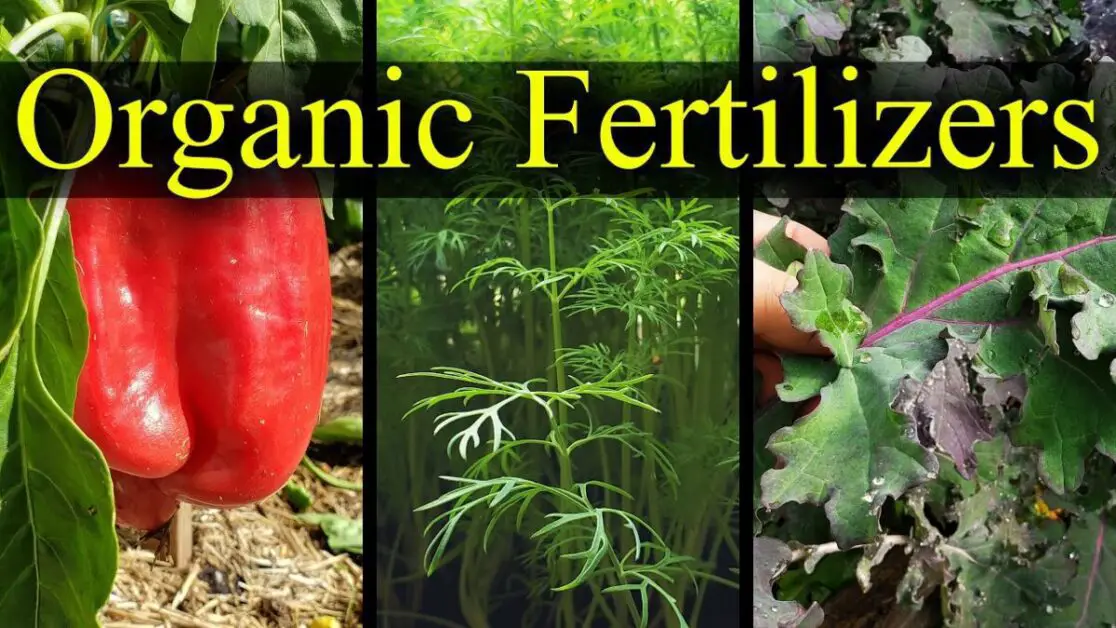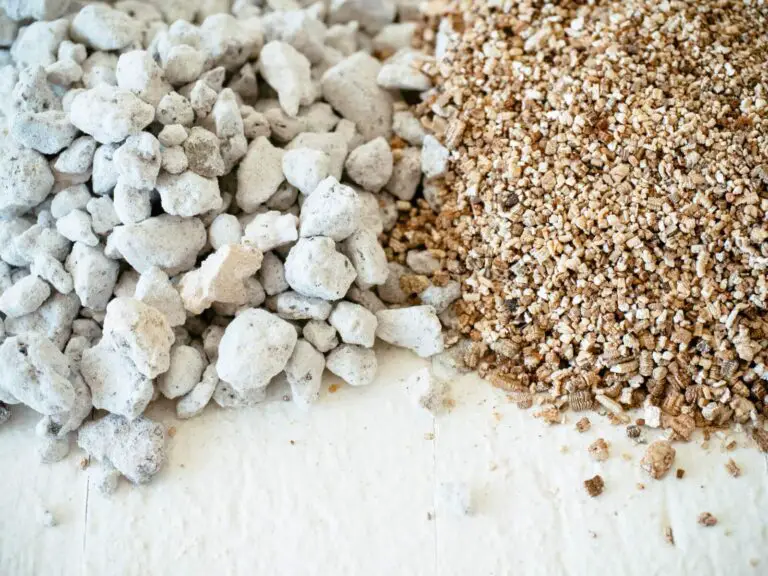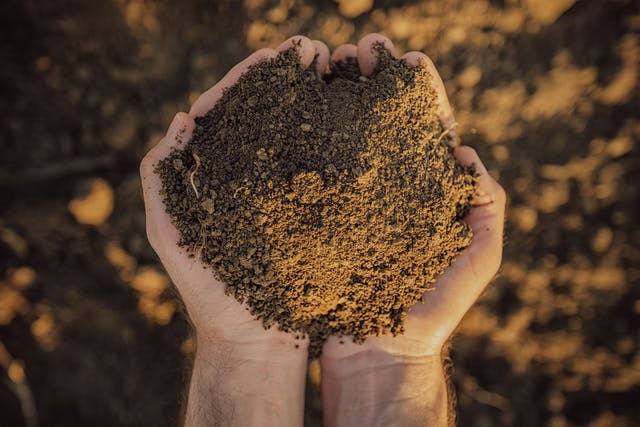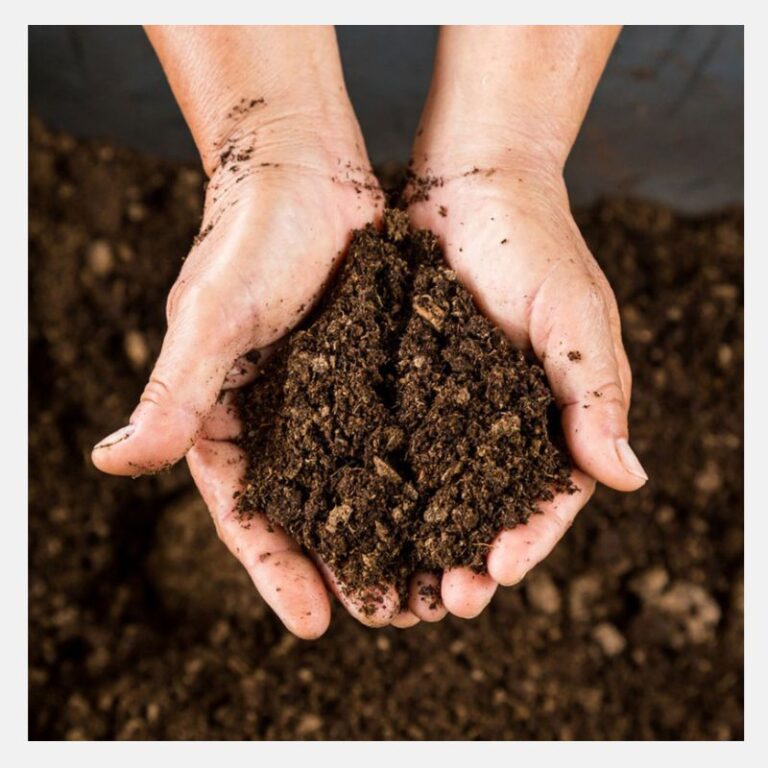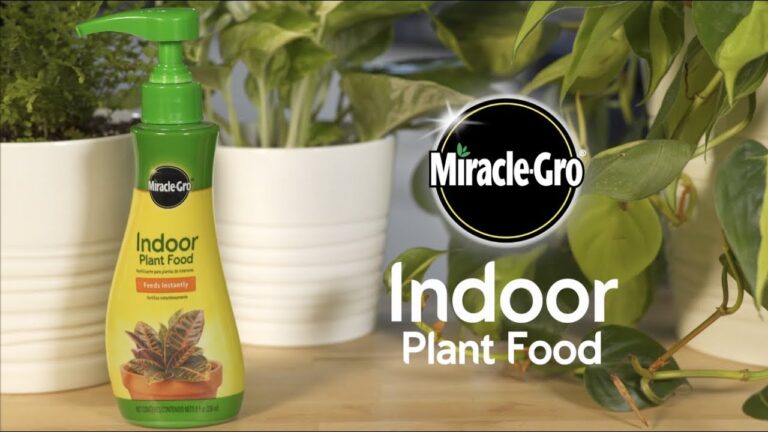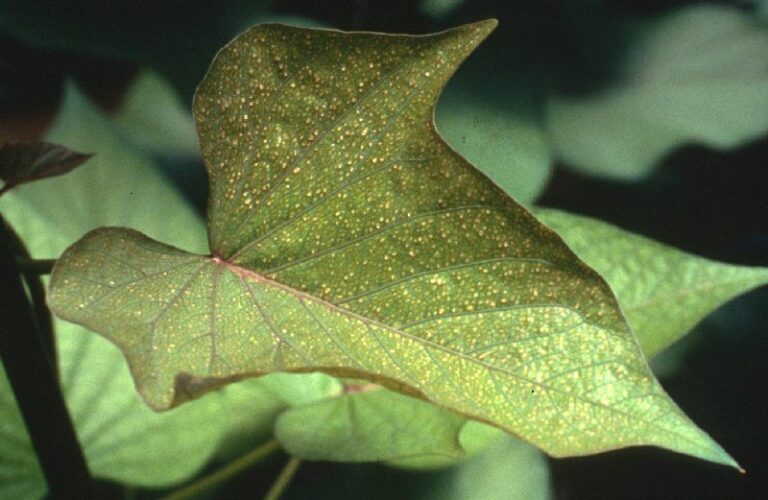Organic Fertilizers: 23 Best Types and How to Use Them Effectively
Table of Contents: Organic Fertilizers
Understanding the Basics of Organic Fertilizers
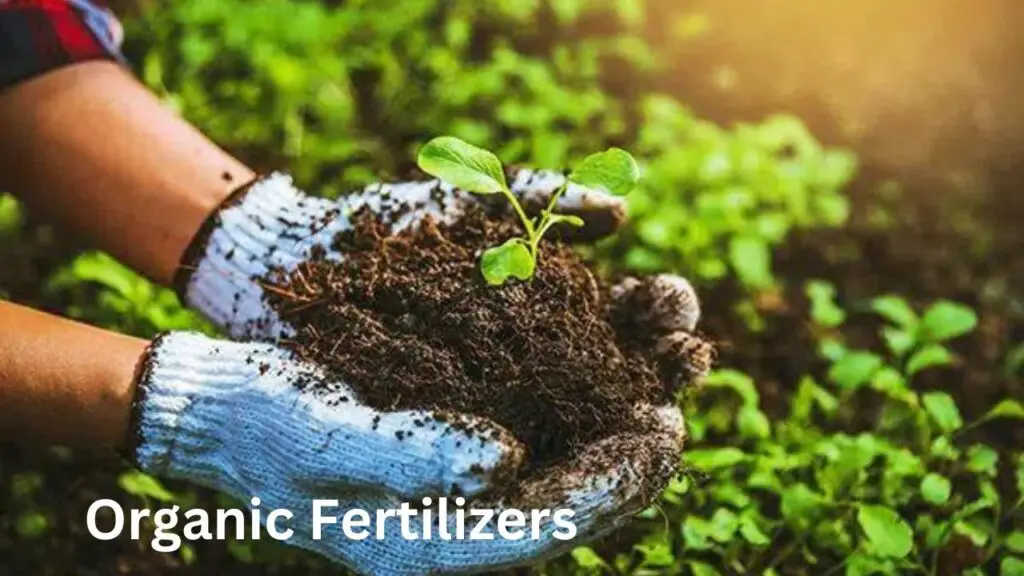
Organic fertilizers have gained popularity among gardeners and farmers due to their numerous benefits for both plants and the environment. Unlike synthetic fertilizers, which are chemically manufactured, organic fertilizers are derived from natural sources such as plants, animals, and minerals. Understanding the basics of organic fertilizers is essential for anyone looking to maintain a healthy and sustainable garden or crop.
One key aspect of organic fertilizers is their ability to improve soil health. Organic fertilizers enhance the fertility of the soil by replenishing essential nutrients and promoting the growth of beneficial microorganisms. These microorganisms break down organic matter, releasing nutrients in a form that plants can readily absorb. As a result, organic fertilizers not only provide immediate nourishment to plants but also foster long-term soil health, improving its structure and water-holding capacity.
Moreover, organic fertilizers contribute to environmental sustainability. They are made from renewable resources and do not contain synthetic chemicals that can harm the soil, water, and surrounding ecosystems. Organic fertilizers also reduce the risk of chemical runoff, which is a significant concern for water pollution. By using organic fertilizers, gardeners and farmers can cultivate their plants in an eco-friendly manner, preserving the balance of the natural environment.
The Benefits of Using Organic Fertilizers
Organic fertilizers offer a range of benefits that make them an excellent choice for both seasoned gardeners and newcomers to the world of gardening. One of the primary advantages of using organic fertilizers is that they are derived from natural sources, such as plant matter, animal waste, and natural minerals. This means that they contain essential nutrients that plants need to thrive, including nitrogen, phosphorus, and potassium, as well as a host of micronutrients that are crucial for plant health.
Furthermore, organic fertilizers improve soil structure over time, enhancing its ability to retain water and nutrients. This leads to healthier, more resilient plants that are better equipped to withstand environmental stressors such as drought or extreme temperatures. In addition, organic fertilizers promote the growth of beneficial microorganisms in the soil, which aid in nutrient cycling and improve overall soil fertility. By choosing organic fertilizers, gardeners can provide their plants with a nourishing and sustainable solution, while also fostering a healthy and balanced environment for long-term gardening success.
Nutrient-Rich Options for Organic Fertilizers
When it comes to choosing nutrient-rich options for organic fertilizers, there are several choices that can provide your plants with the essential elements they need to thrive. One popular option is compost, which is made by decomposing organic matter such as kitchen scraps, yard waste, and manure. Compost not only enriches the soil with nutrients but also improves its structure, moisture retention, and microbial activity. It is a well-rounded organic fertilizer that can be used in various gardening settings, from container plants to large-scale farming.
Another nutrient-rich option is bone meal, which is made from finely ground animal bones. This organic fertilizer is a great source of phosphorus, an essential nutrient for strong root development and overall plant growth. Bone meal is also rich in calcium and trace minerals, making it beneficial for flowering and fruiting plants. It is typically used as a slow-release fertilizer, providing a steady supply of nutrients to plants over time. Remember to follow the packaging instructions for proper application rates, as bone meal should be used in moderation to avoid over-fertilization.
Plant-Based Organic Fertilizers: Exploring the Options
Plant-based organic fertilizers are becoming increasingly popular among gardeners and farmers alike due to their numerous benefits. These fertilizers are derived from natural plant sources, such as seaweed, compost, and plant extracts. They are rich in essential nutrients and minerals that promote healthy plant growth and improve soil fertility.
Seaweed-based fertilizers, for instance, are highly valued for their ability to enhance plant root development, increase disease resistance, and improve overall plant vigor. They contain a wide range of nutrients, including nitrogen, phosphorus, potassium, and trace elements, which are all essential for plant growth. Additionally, seaweed-based fertilizers also contain natural plant hormones, such as auxins and cytokinins, which help stimulate root growth and improve nutrient uptake.
Compost-based fertilizers, on the other hand, are known for their ability to enrich the soil with organic matter, improve soil structure, and enhance nutrient availability. Composting involves the breakdown of organic materials, such as vegetable scraps, yard waste, and manure, through microbial activity. This process results in the formation of nutrient-rich compost that can be used as a fertilizer to supply plants with essential nutrients, improve soil moisture retention, and promote beneficial soil microorganisms.
Plant extracts, such as neem oil or kelp extract, are also commonly used as organic fertilizers. These extracts contain compounds that have natural pesticidal properties, helping to protect plants from pests and diseases. Additionally, they can provide essential nutrients to plants and promote healthy growth.
By utilizing these plant-based organic fertilizers, gardeners and farmers can not only improve the health and productivity of their plants but also contribute to sustainable and environmentally-friendly agricultural practices. With a range of options available, it is important to choose the fertilizer that best suits the needs of your plants and soil conditions. Experimenting with different types and observing the outcomes can help you find the optimal plant-based organic fertilizer for your gardening endeavors.
Animal-Based Organic Fertilizers: A Closer Look
Animal-based organic fertilizers are a popular choice among gardeners due to their rich nutrient content and ability to improve soil health. These fertilizers are derived from various animal sources, including poultry manure, bone meal, and fish emulsion.
Poultry manure, such as chicken or turkey manure, is a valuable organic fertilizer that is rich in essential nutrients like nitrogen, phosphorus, and potassium. It also contains micronutrients like calcium, magnesium, and sulfur, which are beneficial for plant growth and development. When properly composted, poultry manure can provide a slow-release source of nutrients, enhancing soil fertility and promoting strong, healthy plants.
Bone meal, made from ground animal bones, is another animal-based organic fertilizer that is prized for its high phosphorus content. Phosphorus is crucial for root development, flowering, and fruiting in plants. Bone meal slowly releases phosphorus into the soil, providing a long-lasting source of this essential nutrient. Additionally, bone meal contains calcium, which helps strengthen plant cell walls and promotes overall plant health.
Fish emulsion, made from the remains of processed fish, is a nutrient-rich liquid fertilizer that is particularly high in nitrogen and trace elements. Nitrogen is essential for promoting lush foliage and vigorous plant growth. Fish emulsion is readily absorbed by plants and can improve nutrient uptake and overall plant health. It also aids in improving soil structure and stimulating microbial activity in the soil, enhancing nutrient availability for plants.
By incorporating animal-based organic fertilizers into your gardening routine, you can provide your plants with essential nutrients in a natural and sustainable way. These fertilizers not only nourish plants but also contribute to the overall health and fertility of the soil. So, whether you choose poultry manure, bone meal, or fish emulsion, you can be confident that your plants will thrive with the help of these animal-derived organic fertilizers.
Natural Mineral-Based Organic Fertilizers: What You Need to Know
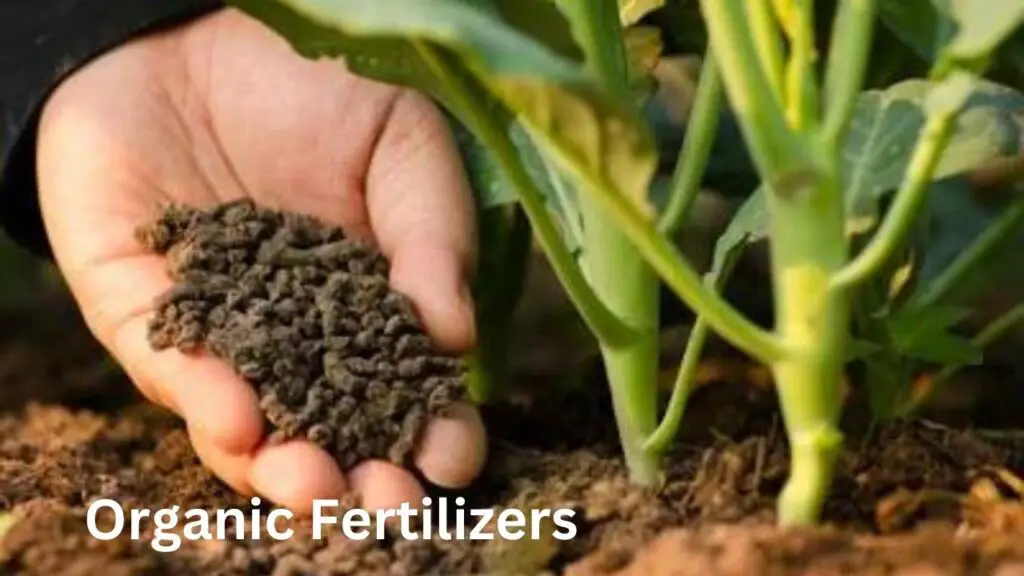
Natural mineral-based organic fertilizers are a valuable option for gardeners looking to nourish their plants with essential nutrients. These fertilizers are derived from naturally occurring minerals that provide a wide range of benefits to both plants and soil. One of the key advantages of using natural mineral-based fertilizers is their slow-release nature, which ensures a steady supply of nutrients over an extended period of time. This allows for better absorption by the plants and minimizes the risk of nutrient leaching into the environment.
Another notable feature of natural mineral-based organic fertilizers is their ability to enhance soil structure and fertility. These fertilizers contain minerals such as rock phosphate, greensand, and gypsum, which contribute to the overall health of the soil. They improve its texture, increase water retention, and promote beneficial microbial activity. By replenishing essential minerals, these fertilizers help maintain soil equilibrium and support the long-term success of plants. Whether you are growing flowers, vegetables, or fruit-bearing trees, incorporating natural mineral-based organic fertilizers into your gardening routine can contribute to healthier plants and thriving ecosystems.
Composting as an Effective Organic Fertilizer
Composting is a highly effective method of fertilizing your organic garden. By utilizing natural waste materials such as fruit and vegetable scraps, yard trimmings, and coffee grounds, you can create nutrient-rich compost that will nourish your plants and enhance soil health.
One of the key benefits of composting is its ability to improve soil structure. As the organic matter decomposes, it creates a loose and crumbly texture that promotes adequate drainage and allows plant roots to access oxygen more easily. Additionally, compost adds essential nutrients to the soil, including nitrogen, phosphorus, and potassium, which are crucial for plant growth and development. This natural fertilizer slowly releases these nutrients over time, providing a steady supply to your plants and reducing the risk of nutrient leaching. Composting also enhances the soil’s water-holding capacity, reducing the need for frequent watering and improving overall water efficiency in your garden.
The Role of Vermicompost in Organic Gardening
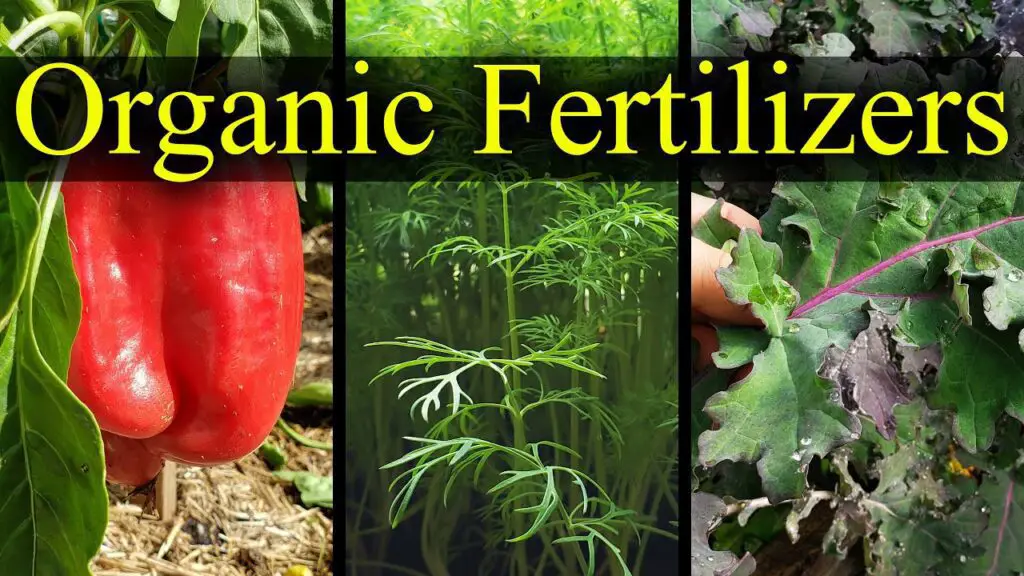
Vermicompost, also known as worm castings or worm compost, is a nutrient-rich organic fertilizer that plays a vital role in organic gardening. This exceptional organic amendment is produced through the process of vermicomposting, which involves using red earthworms to break down organic matter such as kitchen scraps, garden waste, and shredded paper. The result is a dark, crumbly substance that is teeming with beneficial microorganisms and packed with essential nutrients that plants need for healthy growth.
One of the key benefits of vermicompost is its ability to improve soil structure and fertility. The humus-rich nature of vermicompost enhances soil aggregation, allowing for better aeration, water drainage, and root penetration. In addition, vermicompost is a valuable source of organic matter, which helps increase the soil’s water-holding capacity and nutrient-holding capacity. This means that plants grown in soils amended with vermicompost have improved access to nutrients and moisture, resulting in stronger, more vigorous growth. Moreover, the high microbial activity in vermicompost helps break down organic matter further, releasing nutrients in a form that is readily available to plants.
Harnessing the Power of Manure as an Organic Fertilizer
Harnessing the power of manure as an organic fertilizer is a time-tested method that has been used in agriculture for centuries. Manure, derived from animal waste, is rich in nutrients such as nitrogen, phosphorus, and potassium, making it a valuable resource for plant growth. When properly composted or aged, manure can provide a slow-release source of nutrients that nourish plants and improve soil health.
One of the key advantages of using manure as a fertilizer is its ability to enhance soil fertility. The nutrients in manure are released slowly over time, providing a steady supply of nourishment to plants. This slow-release nature helps prevent nutrient leaching and ensures that plants have access to the required nutrients throughout their growth cycle. Additionally, manure also improves soil structure by increasing its water-holding capacity and improving its ability to retain essential nutrients. By incorporating manure into the soil, gardeners can create a nutrient-rich environment that promotes healthy plant growth and yields.
Utilizing Seaweed and Algae-Based Fertilizers in Your Garden
Seaweed and algae-based fertilizers have gained popularity among gardeners due to their numerous benefits for plant growth and overall soil health. These organic fertilizers are derived from nutrient-rich seaweeds and algae, which are packed with essential minerals, vitamins, and growth-promoting hormones.
One of the key advantages of utilizing seaweed and algae-based fertilizers is their ability to enhance soil fertility. These fertilizers contribute to the overall nutrient composition of the soil, improving its structure and water-holding capacity. The minerals present in seaweed and algae, such as potassium, phosphorus, and magnesium, play vital roles in plant development and metabolic processes. Additionally, the growth hormones found in these organic fertilizers stimulate root development, leading to healthier and more robust plants.
Moreover, seaweed and algae-based fertilizers are known to enhance plant resistance against various environmental stressors. The natural compounds present in these fertilizers boost the plant’s natural defense mechanisms, aiding in protection against pests, diseases, and adverse weather conditions. This can result in higher crop yields and better overall plant health.
In addition to their direct benefits for plants, seaweed and algae-based fertilizers also contribute to sustainable gardening practices. These organic fertilizers are typically derived from renewable and abundant resources, minimizing their ecological footprint. Furthermore, the nutrients released by these fertilizers are readily absorbed by plants, reducing the risk of nutrient runoff and pollution of waterways.
When considering seaweed and algae-based fertilizers for your garden, it is important to select products that are sourced sustainably and have undergone quality control measures. Look for reputable brands that adhere to organic standards and have a track record of producing reliable and effective fertilizers. Always follow the application instructions provided by the manufacturer to ensure proper usage and avoid potential risks.
In conclusion, utilizing seaweed and algae-based fertilizers in your garden can offer numerous benefits, including improved soil fertility, enhanced plant growth, and increased resistance against stressors. By incorporating these organic fertilizers into your gardening practices, you can promote sustainable agriculture while reaping the rewards of healthy and thriving plants.
The Significance of Bone Meal and Blood Meal in Organic Gardening
Bone meal and blood meal are two nutrient-rich organic fertilizers that play a significant role in organic gardening. Bone meal is made from finely ground animal bones, while blood meal is derived from dried animal blood. These natural fertilizers are highly valued for their high phosphorus content, which is essential for healthy root development and blooming of plants.
One of the key benefits of using bone meal and blood meal in organic gardening is their slow-release nature. Unlike synthetic fertilizers that provide an immediate burst of nutrients, bone meal and blood meal gradually release their nutrients into the soil over time. This not only ensures a steady supply of nutrients to plants but also prevents the risk of over-fertilization, which can lead to nutrient leaching and environmental pollution. Furthermore, the slow-release nature of these organic fertilizers helps in sustaining plant growth and promoting long-term soil health.
In addition to their phosphorus content, bone meal and blood meal also contain other valuable nutrients. Bone meal is rich in calcium, which plays a crucial role in cell development and overall plant health. It also contains trace elements like boron and zinc, important for various physiological processes in plants. On the other hand, blood meal is known for its high nitrogen content, which is vital for promoting leaf growth and enhancing the overall vigor of plants. Combining these two organic fertilizers can provide a well-rounded nutrient profile for your garden crops, ensuring optimal growth and productivity.
When using bone meal and blood meal, it is important to follow recommended application rates to avoid nutrient imbalances or potential harm to plants. Always read the product label and consult gardening experts or reputable sources for guidance on proper usage. As with any organic fertilizers, it is advisable to conduct a soil test to determine the existing nutrient levels and make informed decisions about fertilizer application.
In conclusion, bone meal and blood meal are valuable organic fertilizers that offer essential nutrients for plant growth and development. Their slow-release nature and nutrient-rich composition make them ideal choices for organic gardening enthusiasts seeking sustainable and environmentally friendly options. By incorporating these fertilizers into your gardening practices, you can contribute to the overall health of your plants and the soil, leading to bountiful harvests and a thriving garden ecosystem.
Understanding the Benefits of Green Manure in Organic Farming
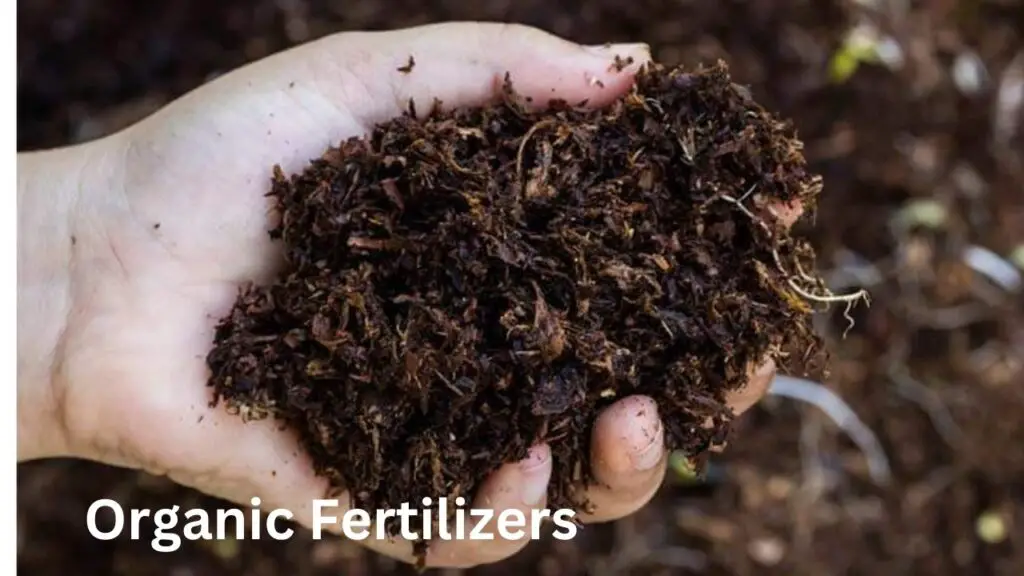
Green manure, also known as cover crops, is an essential component of organic farming that offers numerous benefits to both the soil and the overall health of crops. This practice involves growing specific plant species, such as legumes or grasses, to cover the soil between crop cycles or during fallow periods. These cover crops are then tilled into the soil, providing a host of advantages.
One of the key benefits of green manure is its ability to improve soil fertility. As these cover crops grow, they absorb nutrients from the soil, preventing them from leaching away. When they are tilled under, they decompose, adding organic matter and valuable nutrients back into the soil. This replenishes essential elements like nitrogen, phosphorus, and potassium, promoting healthy plant growth in subsequent crop cycles. In addition, green manure plants help to improve soil structure by reducing erosion and increasing water-holding capacity, ultimately creating a more fertile and productive growing environment.
Here’s a table with information about organic fertilizers:
| Fertilizer Type | Description |
|---|---|
| Compost | Decayed organic matter, rich in nutrients. Improves soil structure, water retention, and microbial activity. |
| Manure (e.g., Cow, Chicken) | Animal waste that provides essential nutrients. Should be composted or aged before use. |
| Bone Meal | Ground bones, rich in phosphorus and calcium. Good for flowering and root development. |
| Fish Emulsion | Fish byproducts, high in nitrogen. Ideal for promoting leafy growth. |
| Seaweed Fertilizer | Derived from seaweed, rich in trace minerals. Boosts overall plant health and stress resistance. |
| Blood Meal | Dried and powdered animal blood, high in nitrogen. Promotes rapid growth and dark green foliage. |
| Feather Meal | Ground poultry feathers, high in nitrogen. Releases nutrients slowly. |
| Green Manure | Cover crops like clover or legumes that are grown and tilled back into the soil to improve fertility. |
| Bat Guano | Bat excrement, rich in nitrogen, phosphorus, and potassium. Suitable for various stages of plant growth. |
| Worm Castings | Rich in nutrients and beneficial microorganisms. Enhances soil structure and water retention. |
| Organic Liquid Fertilizers | Concentrated liquid formulations, often derived from fish, seaweed, or other organic sources. |
| Wood Ash | Ash from burned wood, contains potassium and trace elements. Use sparingly, as it raises soil pH. |
| Alfalfa Meal | Ground alfalfa plant, a good source of nitrogen, phosphorus, and potassium. Enhances soil fertility. |
| Corn Gluten Meal | Byproduct of corn processing, serves as a natural pre-emergent herbicide and fertilizer. |
| Cottonseed Meal | Byproduct of cotton production, rich in nitrogen. Improves soil structure and nutrient content. |
This table provides an overview of various types of organic fertilizers, their sources, and their specific benefits for plant growth and soil health. Keep in mind that the application rates and methods may vary, so always follow recommended guidelines for each fertilizer type.
The Role of Fish Emulsion in Organic Plant Nutrition
Fish emulsion is a nutrient-rich organic fertilizer that plays a crucial role in promoting the overall health and growth of plants in organic gardening. It is derived from the byproducts of fish processing, such as fish scraps, bones, and offal, which are processed and fermented to create a concentrated liquid fertilizer. Rich in nitrogen, phosphorus, and potassium, fish emulsion provides essential nutrients that are readily available to plants, promoting vigorous vegetative growth, increased root development, and enhanced overall plant health.
One of the key advantages of fish emulsion as an organic fertilizer is its rapid availability to plants. Unlike synthetic fertilizers that often require time to break down and release nutrients, fish emulsion is quickly absorbed by plants, ensuring immediate nourishment. This makes it an excellent choice for gardeners looking to address nutrient deficiencies or stimulate growth during critical stages of plant development. In addition, the balanced ratio of nutrients available in fish emulsion contributes to the overall vitality and resilience of plants, making them more resistant to pests, diseases, and environmental stresses.
To fully harness the benefits of fish emulsion, it is important to apply it correctly. It is typically diluted with water according to the manufacturer’s instructions and applied directly to the soil around the base of plants or incorporated into the irrigation system. Regular applications throughout the growing season can provide a steady supply of nutrients to fuel plant growth. However, it is worth noting that fish emulsion has a distinct odor, so caution should be exercised when using it in areas where odor sensitivity may be an issue.
In conclusion, fish emulsion serves as an effective and readily available source of nutrients for plants in organic gardening. Its quick absorption and balanced nutrient profile make it a valuable tool for promoting healthy growth and improving overall plant vigor. With proper application, fish emulsion can be a key component in cultivating thriving organic gardens.
Exploring the Impact of Organic Fertilizers on Soil Health
In recent years, there has been a growing trend among gardeners and farmers to shift towards organic fertilizers as a means to enhance soil health. Organic fertilizers are derived from natural sources such as plants, animals, and minerals, and they provide a wealth of benefits to both plants and the soil they grow in. One of the key impacts of organic fertilizers on soil health is their ability to improve soil structure. Unlike synthetic fertilizers that rely on chemical compounds, organic fertilizers contain organic matter that helps to build and maintain a healthy soil structure. This promotes better water retention, enhances nutrient availability, and creates a suitable environment for beneficial microorganisms to thrive. As a result, the soil becomes more fertile and resistant to erosion, which is crucial for sustainable agriculture practices.
Another significant impact of organic fertilizers on soil health is their role in increasing soil biodiversity. The organic matter present in these fertilizers serves as a food source for soil organisms such as earthworms, fungi, and bacteria. These organisms play a vital role in breaking down organic matter and releasing nutrients in a form that can be easily absorbed by plants. Additionally, the presence of organic matter attracts soil-dwelling organisms that contribute to nutrient cycling and improve soil structure. This biological activity promotes the creation of a healthy and balanced soil ecosystem, which is essential for the long-term sustainability of agricultural systems.
By considering the impact of organic fertilizers on soil health, gardeners and farmers can make informed decisions about their fertilizer choices. Incorporating organic fertilizers not only provides essential nutrients to plants but also nurtures and supports the underlying soil ecosystem. As the demand for sustainable agriculture continues to grow, understanding the benefits of organic fertilizers becomes crucial in preserving soil health and ensuring the productivity and resilience of our agricultural lands.
• Organic fertilizers improve soil structure, promoting better water retention and nutrient availability.
• They create a suitable environment for beneficial microorganisms to thrive, enhancing soil fertility and resistance to erosion.
• Organic fertilizers increase soil biodiversity by providing food for earthworms, fungi, and bacteria.
• Soil organisms break down organic matter and release nutrients in a form easily absorbed by plants.
• The presence of organic matter attracts soil-dwelling organisms that contribute to nutrient cycling and improve soil structure.
• Incorporating organic fertilizers nurtures the underlying soil ecosystem, supporting long-term sustainability in agricultural systems.
• Understanding the benefits of organic fertilizers is crucial for preserving soil health and ensuring agricultural productivity.
What are some common types of organic fertilizers?
Some common types of organic fertilizers include plant-based options like compost, animal-based options like manure, and mineral-based options like seaweed and bone meal.
How do organic fertilizers benefit soil health?
Organic fertilizers improve soil health by increasing organic matter content, enhancing microbial activity, improving nutrient availability, and promoting overall soil fertility.
Can organic fertilizers be used in all types of gardening?
Yes, organic fertilizers can be used in various types of gardening, including home gardens, container gardens, and even large-scale organic farming operations.
Are organic fertilizers safe for the environment?
Yes, organic fertilizers are generally considered safer for the environment compared to synthetic fertilizers. They are biodegradable, reduce the risk of water pollution, and promote sustainable agricultural practices.
How do plant-based organic fertilizers differ from animal-based ones?
Plant-based organic fertilizers are derived from plant materials like compost or seaweed, while animal-based organic fertilizers come from animal waste products like manure or blood meal. Each type provides different nutrients and benefits to the soil.
Can organic fertilizers be used in combination with synthetic fertilizers?
Yes, organic and synthetic fertilizers can be used together, but it is important to carefully manage their application to avoid over-fertilization and potential harm to the environment.
What is the role of composting in organic gardening?
Composting is an effective way to create organic fertilizer by decomposing organic materials. It helps enrich the soil with nutrients, improves soil structure, and supports healthy plant growth.
How does vermicompost contribute to organic gardening?
Vermicompost, produced by earthworms, is a nutrient-rich organic fertilizer that enhances soil fertility, increases microbial activity, improves soil structure, and promotes plant growth.
Can fish emulsion be used as an organic fertilizer?
Yes, fish emulsion is a popular organic fertilizer made from fish waste. It is rich in nutrients like nitrogen, phosphorus, and potassium, making it beneficial for plant growth.
What is green manure and how does it benefit organic farming?
Green manure refers to plants that are grown and then plowed under to improve soil health. It adds organic matter, increases nutrient availability, controls weeds, and helps prevent soil erosion.
Are there any drawbacks or considerations to using organic fertilizers?
While organic fertilizers have numerous benefits, they may have slower nutrient release rates compared to synthetic fertilizers. Additionally, their nutrient content can vary, and their effectiveness may depend on proper application and soil conditions.

